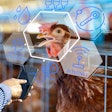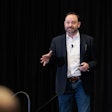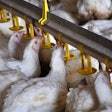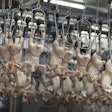
COVID-19 has peaked investors’ interest in animal ag, and feed startups are cashing in
Insect meal startup Beta Hatch has come a long way in recent years.
When the company started in 2015, founder Virginia Emery was raising insects in her backyard. Five years later, the company has raised more than $3 million to build a flagship manufacturing facility in Washington state. But this latest milestone almost didn’t happen.
The company had used crowdfunding to move from Emery’s backyard to a modified office space, but for the flagship mealworm facility it had in mind, it needed more. Emery dedicated most of 2019 to connecting and building relationships with investors she hoped would contribute funds toward the flagship. By the holidays, she was making good progress, but needed to take time off to have a baby. And then the novel coronavirus (COVID-19) pandemic hit.
Like many other startups, Emery moved quickly to close the deals she had on the table before COVID-19 brought investing to a halt. But investors and startups in the agriculture space — and in the animal feed industry in particular — anticipate that after a lull, COVID-19 could actually spur an increase in investment activity in a sector that traditionally hasn’t received much attention from venture capitalists.
“Food has been disrupted since the pandemic, and when food is disrupted, everything stops,” said Mohamed Gastli, co-founder of French insect meal manufacturer nextProtein. “So I think some investors are saying, we have invested 100% of our funds in software companies. Maybe we should begin to put our money in health and food industries.”
A matter of timing
Traditionally, venture capital is much harder to come by in agriculture than in other sectors, particularly software. According to research by AgFunder, investments in ag tech startups have jumped 370% since 2013, with 695 deals closed in 2019. That represents a small fraction of the tens of thousands of funding rounds tracked by broader venture news services such as Crunchbase.
Disruptive software companies such as Facebook and Google have set a high bar in venture capital, proving software is capable of providing high returns on relatively minimal investment. With greater research and manufacturing costs, agriculture may be seen as an inherently riskier investment, according to Michael Seely, CEO of microbial feed additive developer Ascus Biosciences.
“In software, the rate of change is faster. Adoption can happen much more quickly, and the barriers to entry are fundamentally lower,” Seely said. “Companies operating in the digital space — like software, information platforms — they don’t really have manufacturing risks. If you want to manufacture software, to make a million copies you press a button and it’s done.”
Because the required capital is so much greater and the margins smaller, investors in agricultural startups require greater proof of concept. As a result, raising funds — and building a company to a point that it is ready to begin fundraising — often takes longer for agriculture startups than for software and other tech companies.
Ascus Biosciences, which was founded in 2015 and closed a $46 million Series B funding round just before the pandemic began, spent years in an adolescent state where the company was more focused on ensuring consistent product efficacy in commercial settings than on raising funds or scaling its operations.
“It took us about three years to have confidence that the technology platform and the R&D we were practicing made better products,” Seely said. “After that there was this teenage period where you’re trying to mature and adopt traits into the organization that aren’t just R&D, but practical, operational and commercial. It’s like going through puberty for a deep science company.”
The Series B funds, Seely said, will be used to grow the company’s sales and customer service capacity and to begin the GRAS process to enable the introduction of their products into the U.S. Closing the round took about nine months, Seely said, but that’s unusually quick; Seely expedited the process by focusing on investors with whom he worked on past ventures.
Gastli’s experience with nextProtein’s EUR10.2 million (US$11.4 million) Series A round was more typical, spanning almost 12 months. He estimated that, while the average food industry startup will need 8-12 months to raise a round of funds, a tech company could accomplish the same goal in as little as 4-6 months.
Playing the numbers
Besides the longer due diligence process, part of the reason raising funds takes so long for ag startups is the relatively low success rate. Gastli estimated that nextProtein approached as many as 500 prospective investors for every 10 that ultimately contributed to the round.
“The conversion is very low,” he said.
COVID-19, however, stands to change that.
In March, as the world began to enter the height of the pandemic, many investors stopped considering new deals to focus on their existing portfolio, Gastli said. But as the lockdowns receded, he said, investors emerged with new focus. A handful, he said, have reached back out to nextProtein to inquire about future opportunities.
“They’re looking for companies that are resilient, where cash burn has to be very efficient,” Gastli said, with a primary goal of adding companies that weathered the pandemic unscathed to their portfolios. “We are lucky — the food space is in this category.”
Investor interest in agriculture was already growing before COVID-19 in some cases, according to Aglaé Touchard-Le Drian, a partner at RAISE Impact, an investment firm that focuses on socially and environmentally conscious businesses. Thanks in part to climate change, Touchard-Le Drian said there is growing interest in long-term, sustainable investment strategies that take environmental and social risks and returns into account.
While fundraising for Ascus, Seely said, he noticed that an increased number of investors had taken an interest in agribusiness trends such as alternative proteins, though many seemed undecided about their long-term investment strategy.
“There were a lot of cases where you would have wild hyperbolic statements like, ‘Why are you doing this? There won’t be animals in 10 years,’” Seely said. “And there were other cases where they said, ‘This is really interesting.’
“The one thing I kept seeing,” he said, was investors who were, “in general, trying to learn about this industry. They wanted to participate, but they were still formulating an approach.”
Since the onset of COVID-19, these trends have accelerated, according to Touchard-Le Drian.
“Lots of investors are still waiting to see how the situation will evolve before investing,” she said. “On the other hand, there is clearly a growing interest. People realize that there is a need to support sustainable agriculture.”
Back to basics
While RAISE has seen an increased interest, Touchard-Le Drian said investors’ basic expectations remain the same: they all want a return on their investment.
RAISE Impact is primarily interested in investing in companies with EUR5 million or greater in annual revenues that are positioned for rapid growth on the back of sizable capital investment. They have, she said, made smaller investments in earlier-stage companies, including nextProtein, if the business model is solid and the product of interest.
The investment firm plans to bring at least one more agriculture company into its portfolio this year, Touchard-Le Drian said, and has current interests in novel biological products such as seaweed, algae or even food waste.
But no matter how trendy the company’s product may seem, it still needs a solid business model — something Touchard-Le Drian said RAISE has found less common among agrifood startups.
“It’s not always easy to find the proper business mode, to find companies of a critical size, that are able to generate revenue, because it often takes time to make revenue in this field,” she said.
nextProtein and Ascus Biosciences cited their focus on the business model and proof of concept as reasons for their recent fundraising success.
“In feed it’s very important when selling products — the final product needs to be nutritionally stable,” Gastli said. “Investors will talk to your clients and see what they think about it. How is the quality? Would you buy it?”
Seely also emphasized the importance of demonstrating strong returns for customers.
“We didn’t speak much about the issues around antibiotic resistance, or the fact that, with our products, you’re improving the digestibility of feed and liberating feed for other things,” he said. “We spent most of our time talking about how this benefits our customers. There are certainly some things that might help in terms of storytelling, but at the end of the day what matters is are you building something a customer needs? Those are ultimately the things that sustain themselves for a long period of time.”
Post-COVID-19, investors are looking for pandemic-proof companies, according to Touchard-Le Drian. They’re looking for prospects that have maintained their sales throughout the crisis and proven they are adaptable and resilient — especially if the company is poised to digitize and scale its operations to expand while decreasing its dependence on manual labor.
“There will be more investment in the food space, health and ed tech,” Gastli predicted. But in other sectors, “it will be very difficult to gets some money for the next 24 months. The only ones that will succeed are the ones that are the most resilient: strategic companies with no disruption to their supply chain.”
And even among those that raise funds this year, COVID-19 could disrupt plans for future rounds. The pandemic has forced Beta Hatch to postpone its construction plans, and to cut employee salaries.
“We’re re-evaluating the risks we want to take,” Emery said, and trying to get a sense of what trends the future may hold. “Our core customer had a 400% decrease in demand, but we’re not sure that will be the case next year. That can create a very difficult environment to raise capital in.”
Still, Emery said she remains optimistic for the future of her company, and of agriculture, which she views as uniquely positioned for business success in a post-COVID world.
“We’re in a situation where being successful today isn’t enough,” she said. “We need to show value in complex trade relationships and in a changing climate, and food is tied to so many parts of humanity that you really need to look ahead and think ahead.”
















